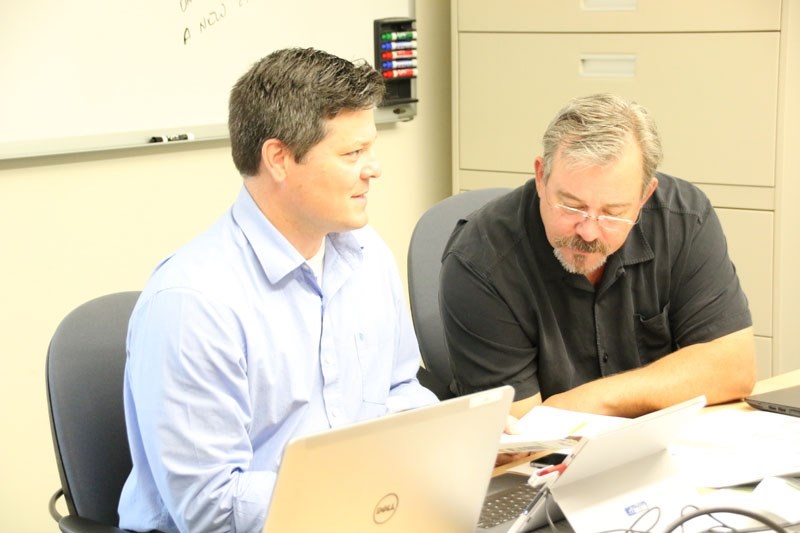St. Albert’s fire department is poised to receive an international accreditation.
Last week, a volunteer peer review team was bustling about St. Albert’s three fire halls, assessing whether or not the department should to receive a recommendation to be accredited through the Commission on Fire Accreditation International program.
While the commission will determine whether or not St. Albert officially nabs the designation later this summer, St. Albert fire chief Ray Richards reports that the peer team plans to recommend the department be accredited. If that occurs, it will join six other Canadian cities in receiving the international accreditation, along with many in the U.S.
Michael Calderazzo is a fire chief in Boulder, Colo., and was leading the peer review team.
“The purpose of accreditation is really to get an agency to ask itself hard questions about what it does for the community and how well it’s aligning with the community’s goals and objectives,” Calderazzo said.
Having an outside group come in to validate and verify that information can be helpful, he said.
The process is about continuous improvement and is a huge amount of work for fire departments that decide to seek accreditation. Calderazzo said the St. Albert fire department would have had to prepare at least three extensive documents for peer review. They include a strategic plan, a standard of cover (which includes a community risk analysis) and a fire and emergency services self-assessment manual.
The last is the really big one, he said, and includes 254 performance indicators that a fire agency has to address.
“This moment right now for them is the culmination of probably at least two to three years worth of work,” Calderazzo said.
“The community has already benefitted from the work that they’ve done,” he said.
In addition to reviewing the documents, the team also spent some time checking out the fire stations, talking to the firefighters and talking to other city stakeholders like the city manager.
The review has included more than just the fire department’s firefighting ability. It looks at everything from the department’s finances to ambulance and fire response times.
Calderazzo noted there’s a lot of politics around ambulance response times in Alberta, where the province has taken control of the ambulance service. St. Albert’s ambulance response times have grown since that change, as the ambulances stationed in St. Albert are sometimes out of the community responding to other calls, meaning calls from St. Albert have to wait longer for a response.
The team doesn’t only measure the applicant against industry best practices. Calderazzo said they also consider what level of service the community wants and whether or not the fire department is meeting those expectations.
“What is the will of the people?” he asked.
The volunteer team spent a few days in St. Albert. The four-man team, plus one observer, hailed from Boulder, Ottawa, St. Louis, Regina and the state of Washington.
Richards reported last Thursday that the volunteer team had informed the St. Albert fire department that it would be recommended for accreditation. The commission will make the final decision, likely in August.
In an interview done the day before getting the good news, Richards said his teams first heard about this particular accreditation while doing some long-term planning in 2010. They found the particular program appealing because of the in-depth, challenging nature of the program.
It could help keep the fire department pursuing continuous improvement, he said.
The decision to pursue the accreditation was made a few years ago, and a large amount of work ensued, especially over the last two years.
Through the process, they found a few areas that could be strengthened, Richards said.
“It’s a very worthwhile process,” Richards said.
If the board grants the recommended accreditation this summer, it won’t be over and done. The St. Albert fire department will have to seek a renewal in five years, contributing to the goal of continuous improvement.
Last Wednesday, not knowing what news would be delivered by the peer team, Richards said his department would work to finish the task up, even if accreditation was not recommended at this time.
“We’re not quitters,” he said.




